Have you ever acted against your better judgment because social convention says doing otherwise would be impolite? You’re not alone. Much of everyday civility is maintained by our adherence to societal niceties, but what happens when you’re faced with someone who refuses to respect them? And when they push you, where’s the line for pushing back? This is the dilemma at the heart of the new thriller Speak No Evil, and it’s this conundrum’s relatability that helps to make the film such a compelling watch.
Speak No Evil is one of the most tense cinematic experiences I’ve had in a long time, and I thoroughly enjoyed every minute of it. The film follows an American couple and their young daughter as they’re invited to spend a long weekend at a house in the English countryside, hosted by a British family of three they met during a recent Spanish getaway. However, despite slowly coming to suspect that their new friends are not who they say they are, the couple avoids confrontation, preferring to maintain a facade of pleasantness until it’s too late and their weekend descends into the stuff of nightmares.
Sitting down with James McAvoy (Split, Atonement) and Scoot McNairy (Godless, Gone Girl) from the film’s outstanding cast, I’m eager to explore this idea of the social contract and what happens when one party ignores it. The film offers a stark contrast between the two versions of masculinity that stand on either side of this conflict — while McAvoy’s Paddy is a mesmerising and aggressive mix of charm and menace, whose animalistic nature swings from magnetic to repellant, McNairy’s performance as Ben is more understated and reserved, yet provides a compelling view of the struggle engaged within.
Because You Let Me
“One of the key things that the film is about is social compliance, and how much we are willing to sacrifice our own moral core, sense of self, and self-esteem for the greater good, for keeping society balanced and safe,” McAvoy divulges, getting right to the heart of the matter.
“That means, all right, I don’t agree with the government, but I still pay my taxes. I don’t agree with the horrific views that you’re spouting at a party, but I keep quiet because I don’t wanna start a fight, you know? So those things are civilised. Those things mean that society keeps working, but we’re sacrificing a bit of who we are, what we believe, and what makes us ourselves, every time we do that.”
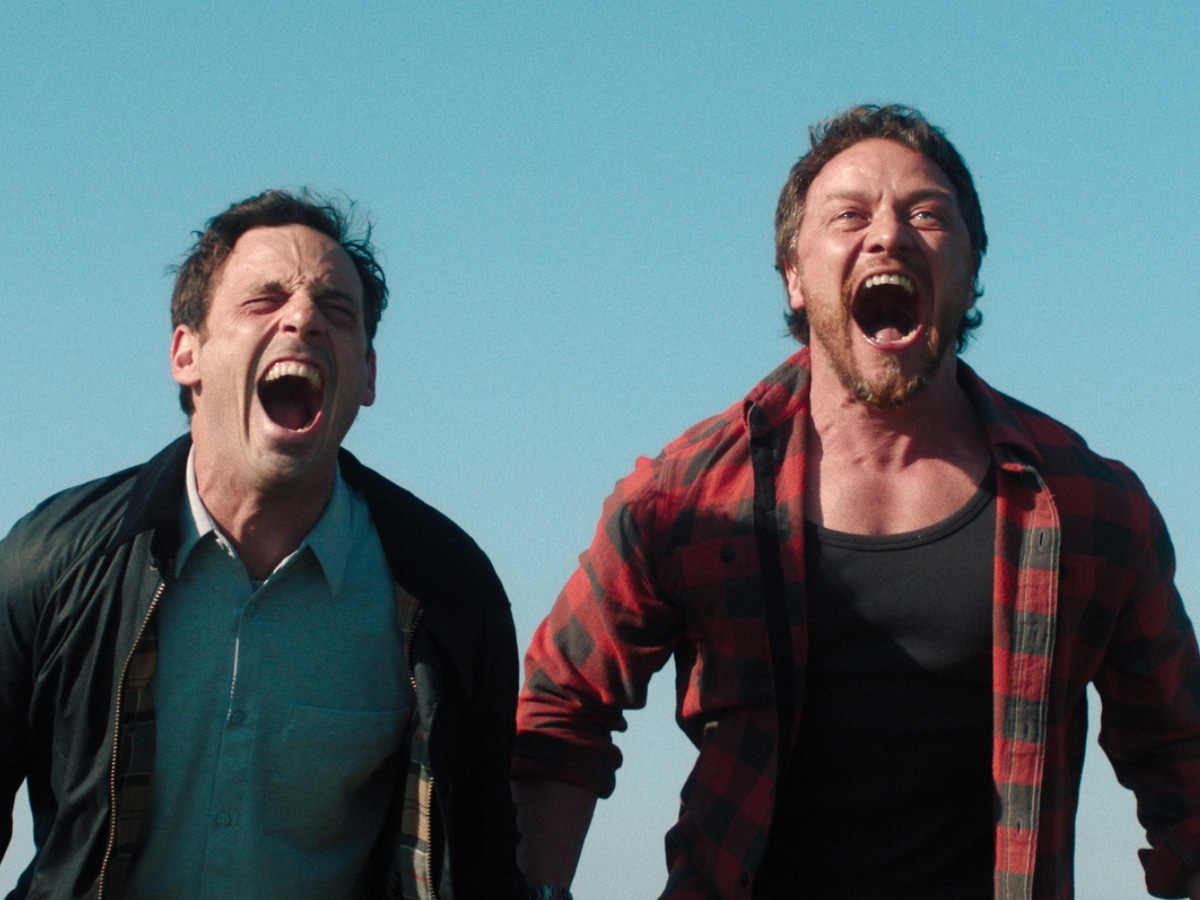
As Paddy, McAvoy embodies a man who is entirely unwilling to make such sacrifices, while McNairy’s Ben has made them time after time. Despite this, whenever Ben does so, we see him lose part of himself all over again. There’s a deep discomfort within Ben that’s like a wound desperately trying to heal and yet reopened every time he backs down from conflict. When I ask about this, McNairy’s upbeat nature couldn’t be further removed from his on-screen incarnation.
“I think the initial thing that really got me excited about Speak No Evil was this idea that it’s playing on such subtleties of uncomfortableness,” he reveals. “As an actor, that’s something that I was like, oh, this could be a lot of fun to play with and toe that line.”
Exploring this dynamic, part of what made the film so enticing for McNairy is a broader parallel he sees between Ben’s character and our society’s approach to communication and conflict in the digital age.
“For me, it’s the through line of the film, and of the society in which we’re living now,” he explains. “The ability to compose a text and not see someone’s response to it is something that society has gotten really comfortable with. And so when you spend 15 years communicating through digital mediums, to sit with uncomfortableness is not something we’re trained to do. So what happens when you have a society that doesn’t feel comfortable to speak up about something? How far will they go and how much will they sit in it?”
As it turns out, Ben is willing to sit in it to an almost excruciating degree, which sets up a particularly anxiety-inducing moment when he finally asks Paddy why he does what he does. The chilling response comes, “Because you let me.”
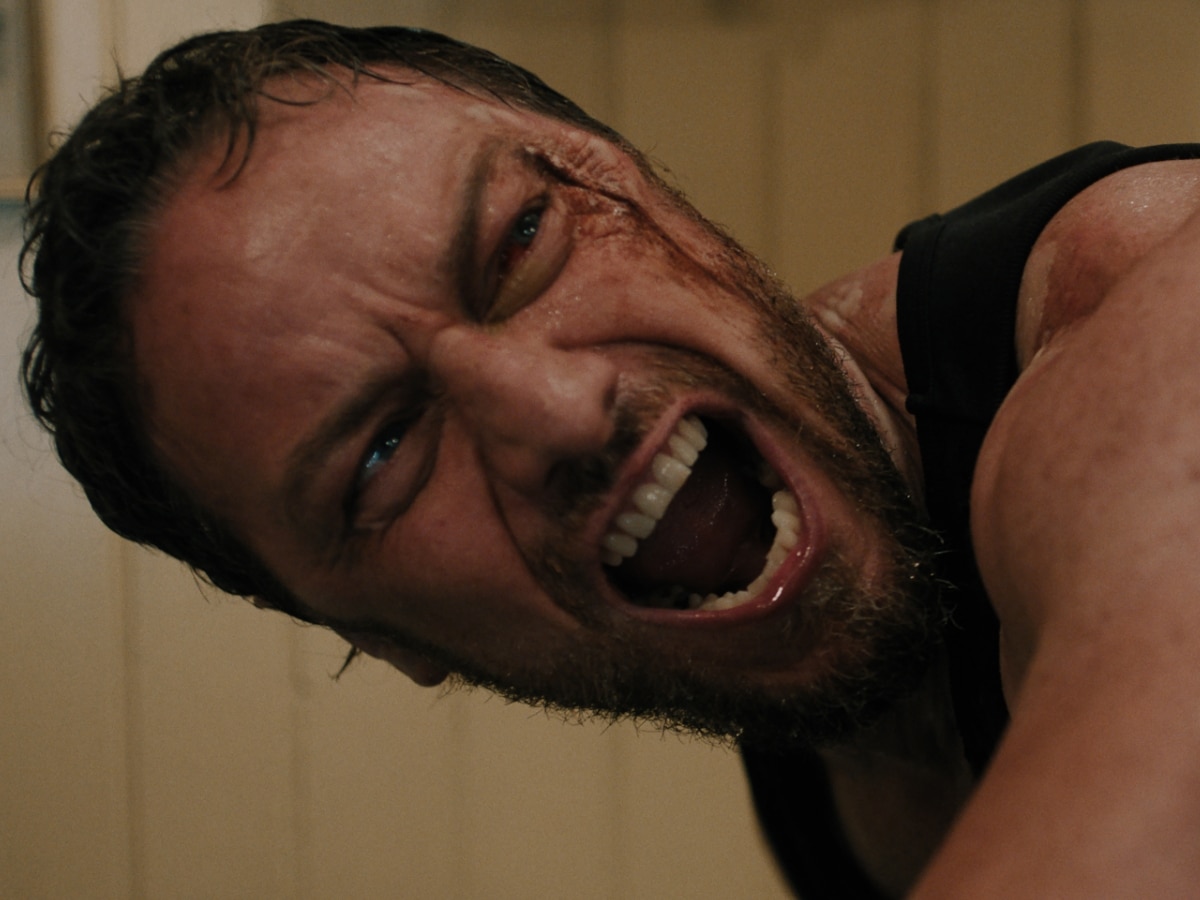
“Paddy never signed that social contract. He pissed on it and threw it in the fire.” McAvoy laughs. He may be joking, but it’s an accute description of his character.
“He’s an animal, and he’s dangerous to society,” he continues. “There are two opposite ends of the spectrum, and of course, somewhere in the middle is a fully functioning member of society that can both pay their taxes and call people out on the horrible views they have at parties. But Ben is so far away from that at the beginning of this film, he’s struggling so much with his self-esteem, with his sense of self, his sense of masculinity, and with his sense of being a father, a husband, all these things.”
Predators and Prey
Ben’s uncertainty within himself leaves him vulnerable to Paddy’s predatory instincts. And despite the obvious toxicity of his new friend, Paddy’s humour and charm enable Ben to make excuses for him and give him the benefit of the doubt for far longer than he should.
“When he sees this potentially toxic figure spouting all that he spouts, he doesn’t really take that in,” says McAvoy. “What he takes in is that this guy seems happy, and this guy seems to have answers to that most fundamental question of what is the secret to life? What is the secret to happiness? I mean, this guy seems to know it, and so it’s really attractive to him and he’s like a moth to the flame.”
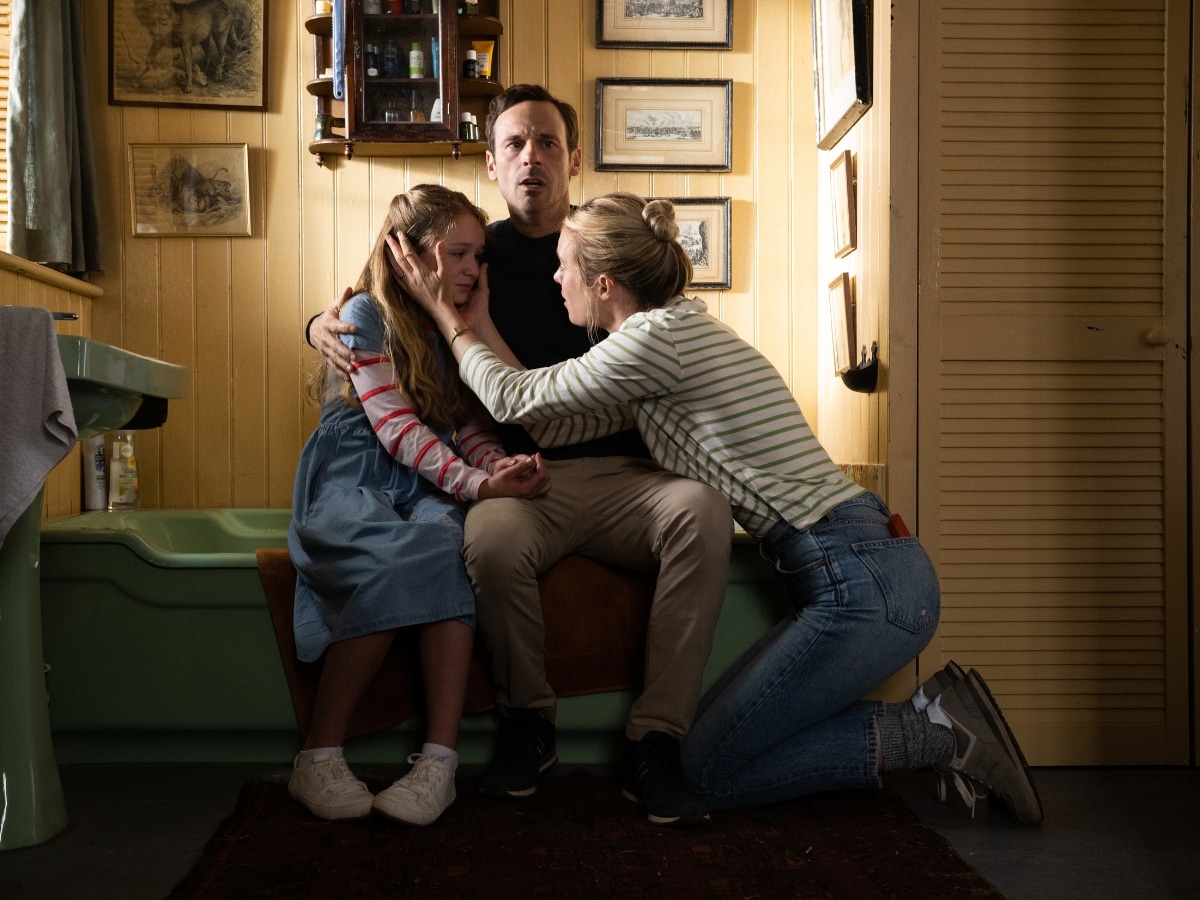
While he has a joviality that is certainly engaging, Paddy’s presence throughout Speak No Evil also carries a consistently weighty threat of violence. However, for McNairy, watching his co-star wrestle with this character was less disquieting than a moviegoer might expect.
“I have to say that James McAvoy is a good distance away from Paddy,” he chuckles. “The only characteristics they do hold is that James and Paddy are very funny, and they’re both very charismatic. So to watch James play and dabble with this absurdity of toxic, toxic masculinity, or these different colours within his performance, we all see it in the movie, but to see it on set and watch him sort of find it and play with it was incredibly amusing.”
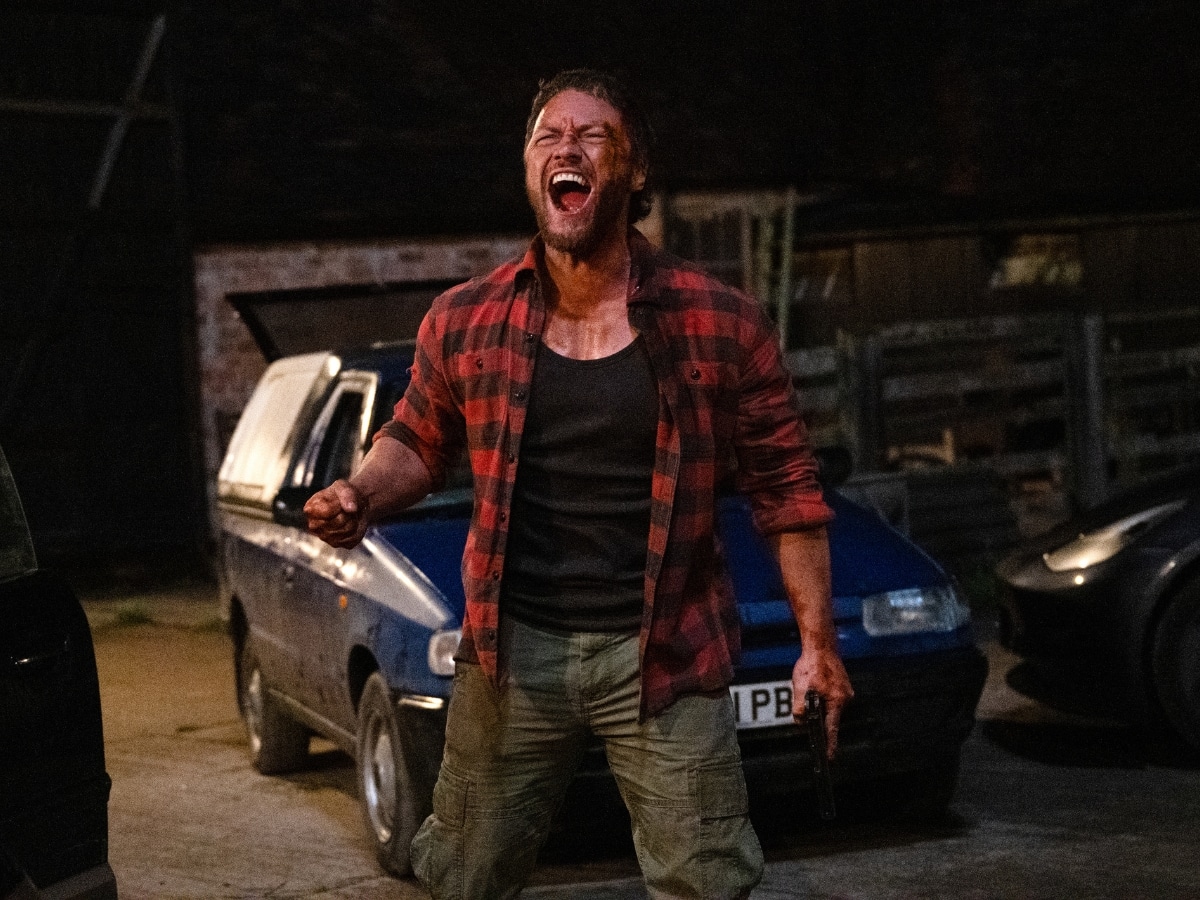
An enormous part of what makes Paddy such a powerful force throughout the film is his intimidating frame. Never one to shy away from hitting the gym for a role—see Split for proof of that—it comes as a surprise to discover that McAvoy did not, in fact, have to do much by way of physical preparation for the role.
“It (the physicality) was really important, but it was almost kind of fortuitous, really,” he says. “For a couple of years before I got this role, I’d been lifting really heavy weight and eating a lot of food. So when the movie came along, I was like, oh, great, this works out perfectly.”
At first, Speak No Evil only hints at McAvoy’s intimidating physique. Then as the movie progresses and the audience and Ben’s family’s worst fears are confirmed, the threat Paddy poses comes into sharp focus.
“I wanted it to be as soft as possible for the beginning of the movie, and then throughout the whole middle of the movie, I’m clothed anyway, so you don’t really notice,” McAvoy explains. “But by the end of the movie, I’d made sure I’d leaned out a little bit so that I could be more muscular, and I did all that nonsense of push ups before a take just to make him more animalistic and threatening. As he was literally having layers taken off him, and he was being covered in acid and soaking wet and all that, you wanted him to have that intimidating presence towards the end of the movie.”
McAvoy has undoubtedly succeeded when it comes to that, as has the whole Speak No Evil cast and crew in crafting one of the best thrillers in quite some time. After you’ve seen it, don’t be surprised if the film stays with you as you find yourself contemplating social compliance and precisely where you sit on the scale between Paddy and Ben. And if someone was to push you, at what point would you push back?
Speak No Evil arrives in cinemas on September 12.


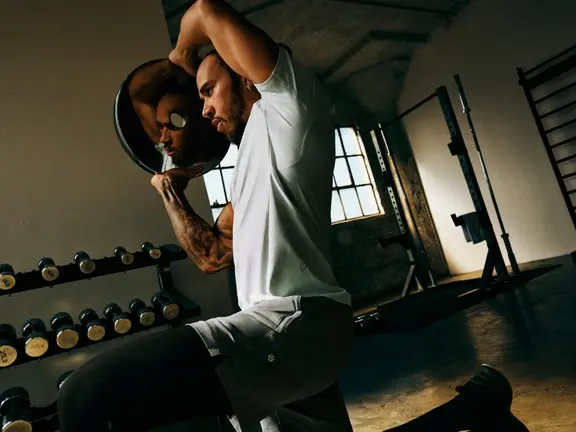













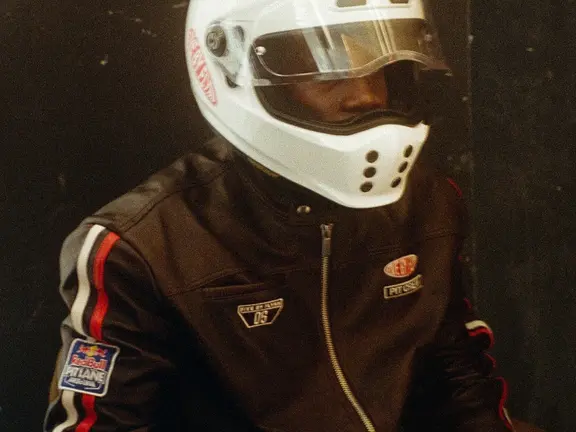













Comments
We love hearing from you. or to leave a comment.